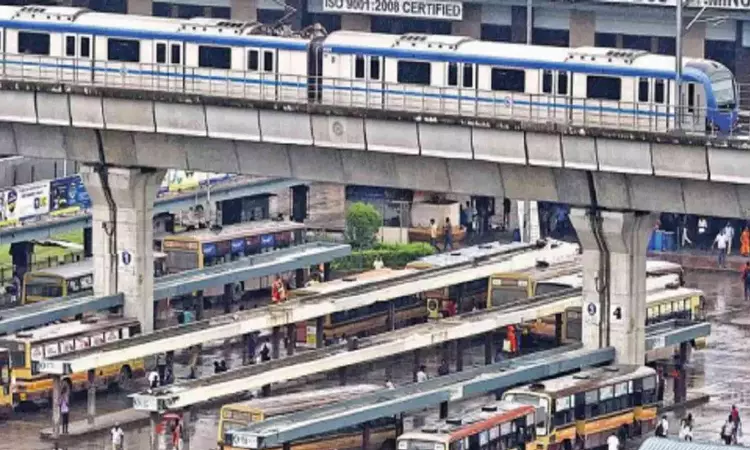Cumta to survey households to identify exact travel preferences
He said that based on the survey results, recommendations will be made to extend Metro connectivity or set up new bus terminus or provide new railway lines.

Representative image
CHENNAI: As a part of the preparation of the Comprehensive Mobility Plan (CMP), the Chennai Unified Metropolitan Transport Authority (Cumta) has decided to conduct a household survey across the Chennai Metropolitan Area (CMA) to understand the travel patterns of the denizens.
According to a Cumta official, a household survey will be conducted by visiting as many as 50,000 houses across the CMA. As many as 30,000 houses will be selected for survey within the present CMA of 1,189 sqkm and 20,000 houses will be selected from extended areas of the CMA. The transport authority is preparing CMP for 5,904 sqkm with a horizon period of 25 years.
Apart from this, cluster study and vehicle camera-trapping methods will be conducted as a part of the survey. “The study will help in understanding the travel patterns of the residents and preferences for commuting. Around 7 to 8 surveys have been planned for preparing the mobility plan,” I Jeyakumar, special officer for Cumta, said.
He said that based on the survey results, recommendations will be made to extend Metro connectivity or set up new bus terminus or provide new railway lines.
Meanwhile, Cumta held a meeting to discuss the objective, scope and other aspects of the mobility plan recently. There are several processes including a review of the interim report, and draft plan apart from conducting stakeholders and public consultations meetings before finalising the mobility plan. “It will take at least 8 months to prepare the plan CMP,” he added.
CMP will be prepared in such a way that it would ensure integration with the third master plan to be prepared by the CMDA (Chennai Metropolitan Development Authority). The updated CMP would be based on green, resilient, inclusive, development-focused and safe (GRIDS) principles and would give priority to the movement of people instead of vehicles.



